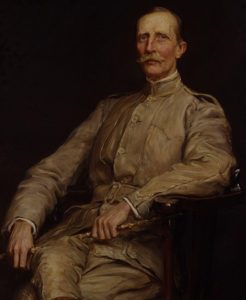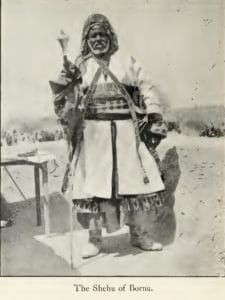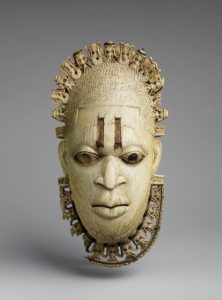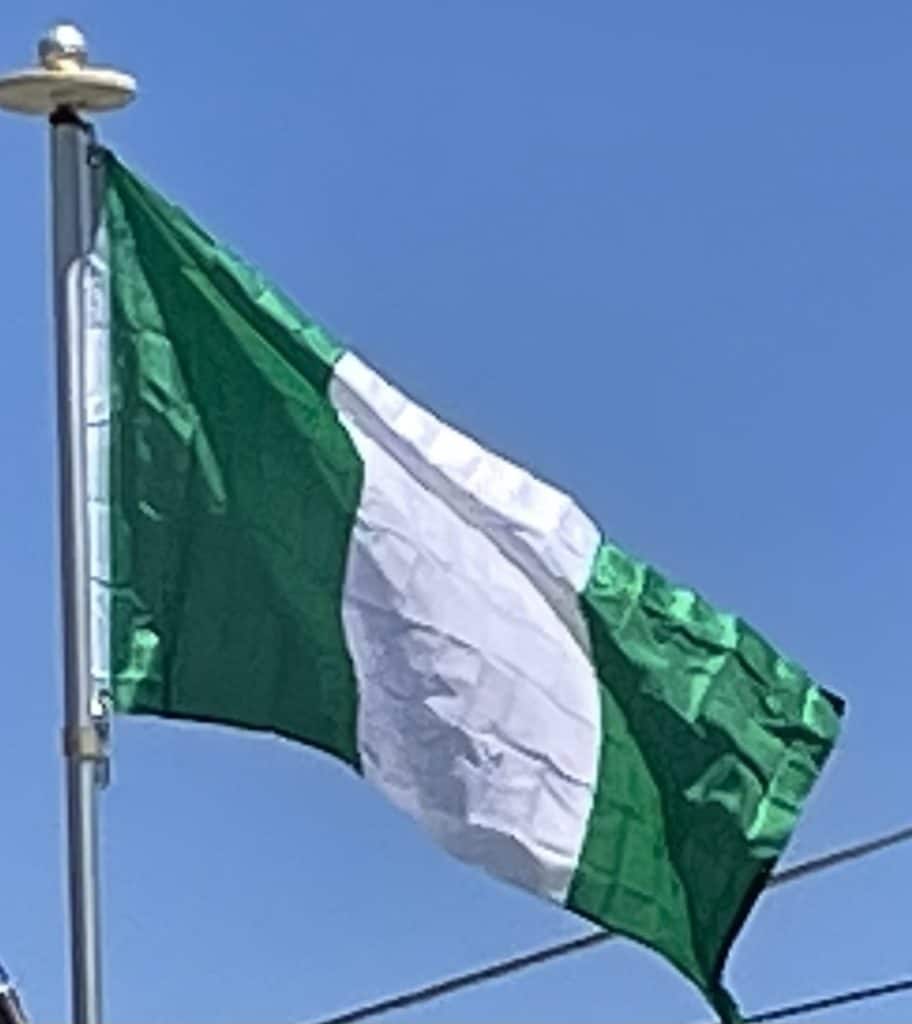In 1885, British claims to a West African sphere of influence received recognition from other European nations at the Berlin Conference. The following year, it chartered the Royal Niger Company under the leadership of Sir George Taubman Goldie.

By the late 19th and early 20th centuries, the company had vastly succeeded in subjugating the independent southern kingdoms along the Niger River, the British conquered Benin in 1897, and, in the Anglo-Aro War (1901–1902), defeated other opponents. The defeat of these states opened up the Niger area to British rule. In 1900, the company’s territory came under the direct control of the British government and established the Southern Nigeria Protectorate as a British protectorate and part of the British Empire, the foremost world power at the time.
By 1902, the British had begun plans to move north into the Sokoto Caliphate. As the British approached the city of Sokoto, the new Sultan Muhammadu Attahiru I organized a quick defense of the city and fought the advancing British-led forces. The British force quickly won. In the northeast, the decline of the Bornu Empire gave rise to the British-controlled Borno Emirate which established Abubakar Garbai of Borno as the ruler.

In 1903, the British-victory in the Battle of Kano gave them a logistical edge in pacifying the heartland of the Sokoto Caliphate and parts of the former Bornu Empire. On March 13, 1903, at the grand market square of Sokoto, the last Vizier of the Caliphate officially conceded to British rule. The British appointed Muhammadu Attahiru II as the new Caliph. Fredrick Lugard abolished the Caliphate, but retained the title Sultan as a symbolic position in the newly organized Northern Nigeria Protectorate. This remnant became known as “Sokoto Sultanate Council”. In June 1903, the British defeated the remaining forces of Attahiru I and killed him; by 1906 resistance to British rule had ended.
On 1 January 1914, the British formally united the Southern Nigeria Protectorate and the Northern Nigeria Protectorate into the Colony and Protectorate of Nigeria. Administratively, Nigeria remained divided into the Northern and Southern Protectorates and Lagos Colony. Inhabitants of the southern region sustained more interaction, economic and cultural, with the British and other Europeans owing to the coastal economy.

Following World War II, in response to the growth of Nigerian nationalism and demands for independence, successive constitutions legislated by the British government moved Nigeria toward self-government on a representative and increasingly federal basis. By the middle of the 20th century, a great wave for independence was sweeping across Africa. Nigeria achieved independence in 1960.
Federation and Independence (1960):
Nigeria gained independence from the United Kingdom on 1 October 1960, as the Federation of Nigeria, while retaining the British monarch, Elizabeth II, as nominal head of state and Queen of Nigeria. At independence, the cultural and political differences were sharp among Nigeria’s dominant ethnic groups: the Hausa–Fulani (‘Northerners’), Igbo (‘Easterners’) and Yoruba (‘Westerners’).
